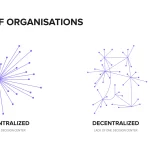
The global marketplace enables consumers to locate products with prices that meet their requirements while discovering products that offer excellent value.
E-commerce businesses that expand into international markets access significant growth opportunities and revenue diversity though they must handle unique challenges.
Increased Revenue
In the past cross-border trade operations were limited to major corporations. The modern global infrastructure alongside rapid internet connectivity enables worldwide business transactions which allows firms to access new marketplaces and boost revenue while reducing operational costs.
Businesses that source products from France or South Korea have substantial opportunities to expand their customer base thanks to the global ecommerce market’s estimated value of $793 billion.
Applying successful localization strategies can lead to substantial increases in online sales and improved customer engagement. Successful adaptation to different markets requires customizing marketing content and website text to meet local cultural standards while utilizing regional social media influencers to market products.
Businesses which offer unmatched customer service become more appealing to buyers because of flexible shipping choices and convenient payments as well as multilingual support. The combination of these elements leads to a customer journey that people enjoy and boosts conversion rates. Businesses should prioritize staying informed about global trade patterns to reduce tariff consequences.
Sustainability
Through cross-border trade businesses can increase their revenue while simultaneously expanding their customer base which introduces new consumer preferences and purchasing power across markets leading to stable long-term growth. Your company can withstand economic instability in your home country through multiple revenue streams which function as a protective buffer.
The expansion of cross-border eCommerce involves additional complexities beyond basic international shipping procedures. To understand international trade laws and regulations businesses must conduct comprehensive research on customs compliance requirements, tariffs and other relevant trade requirements in every country where they sell.
Develop product offerings and pricing strategies that resonate with foreign customers given the significant differences in consumer preferences and shopping behaviors across various countries. Continuous analysis is essential to effectively manage international supply chains to reduce risks and capture market opportunities.
Diversification of Sales Channels
Businesses gain diversified revenue streams through global expansion. Businesses can reach new customers in different regions with unique preferences and buying patterns through international expansion and use these markets to increase revenue during their home domestic slow periods.
The expansion of sales channels brings about new challenges as businesses face currency risks and localization requirements. Companies that buy products in one currency yet sell them in another face the risk of exchange rate changes which can shrink profits or create losses along with price adjustments that confuse customers and drive them away from buying.
Through international sales brands can offer their customers products unavailable in their local markets like French artisanal goods and South Korean technological innovations. Businesses that export specialized goods can bring exceptional value to customers in foreign markets while distinguishing themselves from competitors while international distribution of these specialized products represents profitable investment opportunities according to predictions that cross-border online trade markets will reach double their current value by 2025.
Localization
Cross-border ecommerce offers businesses the opportunity to connect with customers worldwide. Businesses can achieve brand recognition and trustworthiness with diverse populations through increased credibility across multiple demographics. Through international sales businesses gain revenue stability for seasonal products when domestic demand is low.
Without proper localization an ecommerce store will struggle to internationalize because it needs to overcome language and cultural differences to serve customers worldwide. Content after translation should follow proper grammar protocols and accurately represent the cultural subtleties of each specific target market.
Multichannel ecommerce management platforms connect sellers to regional marketplaces with existing customer bases providing them with structured access to cross-border sales markets. This strategy reduces logistical hurdles and provides benefits including inventory monitoring tools and consumer behavior analysis for targeted marketing as well as regional customer service support.


